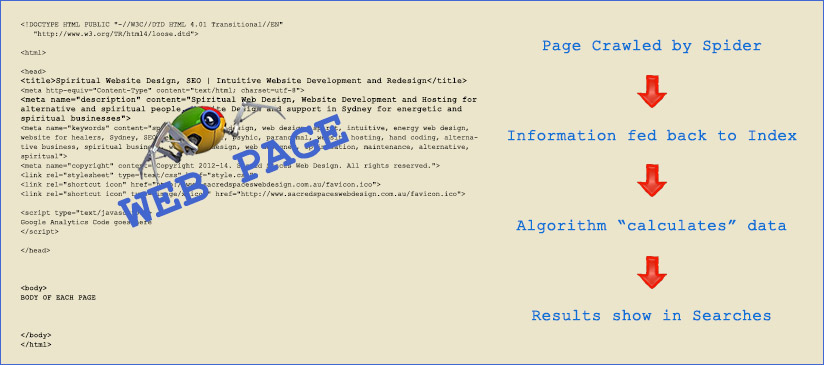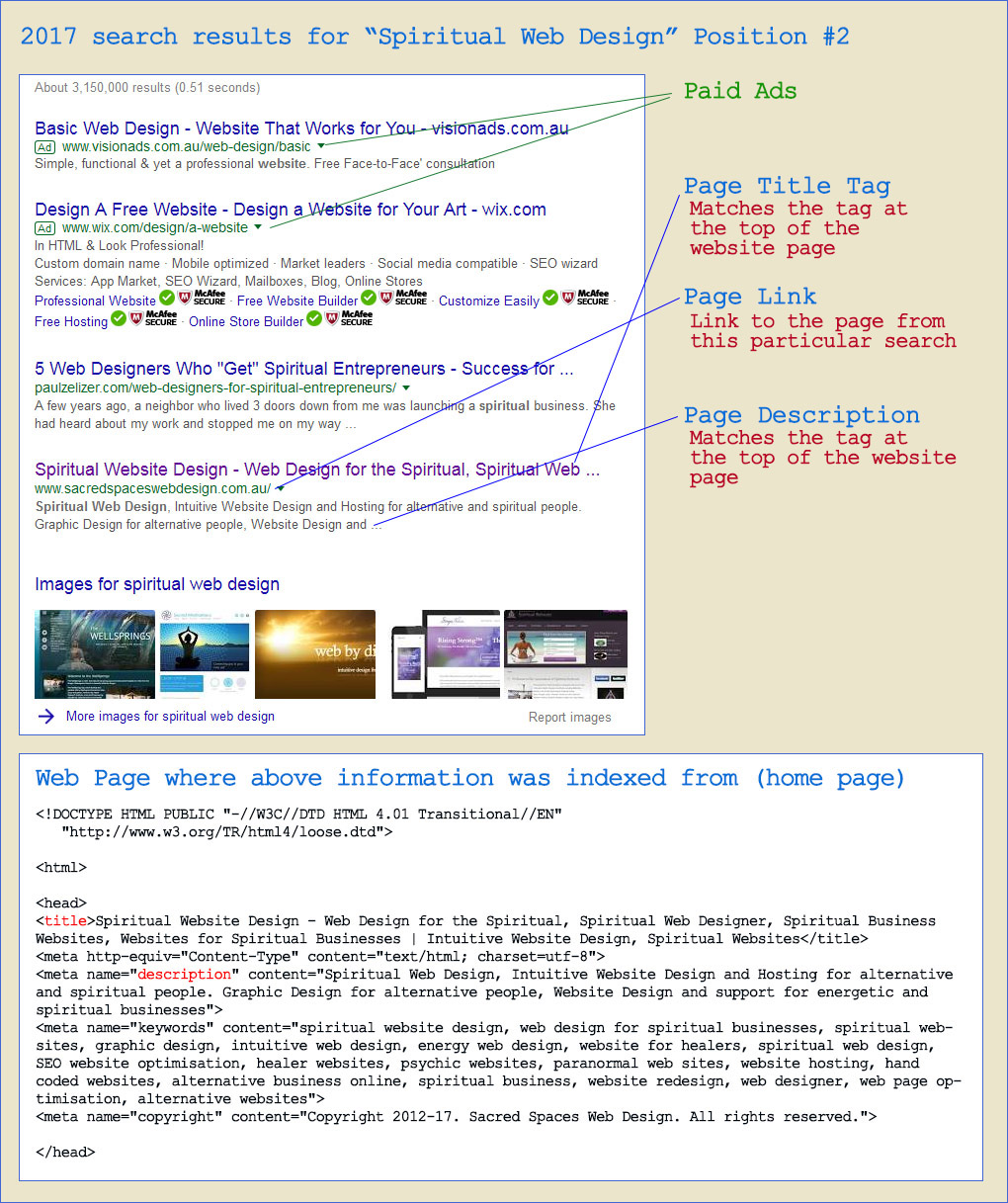How Does Website Ranking Work?
 "No one can guarantee a #1 ranking on Google.
Beware of SEO's who claim to guarantee rankings, allege a "special relationship" with Google, or advertise a "priority submit" to Google.
There is no priority submit for Google. In fact, the only way to submit a site to Google directly is through
our Add URL page or by submitting a Sitemap and you can do this yourself at no cost whatsoever." "No one can guarantee a #1 ranking on Google.
Beware of SEO's who claim to guarantee rankings, allege a "special relationship" with Google, or advertise a "priority submit" to Google.
There is no priority submit for Google. In fact, the only way to submit a site to Google directly is through
our Add URL page or by submitting a Sitemap and you can do this yourself at no cost whatsoever."
This article is about how Google Indexes your website and displays pages Search Results.
For information on how to Optimise Your Site and more in-depth details about Ranking,
click here.
Google crawls individual pages, one by one, day after day, and there are over 60 trillion pages on the internet.
The software used to do this is called a Spider. It crawls from top to bottom, following any links it finds as well.
Google then feeds the information from crawling into an Index (over 100 million gigabytes of information).
Information such as keywords and phrases, quality of web design, any signs of sales-like content (repetitive words, overuse of synonyms), alt tags
(tags that tell Google what an image is), black hat techniques (cheating to get higher ranking) and many other bits of information.

A Google Algorithm is the formula used to assess the information in the Index, and give us accurate and SAFE search results
when we enter a search query into a Search Engine. These Algorithms change from time to time, as Google tries new ideas and formulas.
When you enter a search query, such as "Spirit Medium in Melbourne", Google has to define what you mean,
and therefore what you are expecting to see in the results. It has to understand that you are not looking for spirit as in "alcohol",
or using the word medium meaning "moderate", but that you are most likely looking for a "Spirit Medium".
Google quickly tests the fact that other searchers have typed in "Spirit Medium" and clicked through to sites about "Spirit Mediums",
because that's what they were looking for. In this way Google engages user history to interpret the present search query.
Interesting to note: Synonyms - If you try this search query, you can see clearly Google understands it can use
Psychic Medium here as an alternative phrase to Spirit Medium.. whilst Psychic Mediums and Spirit Mediums may not be interchangeable for everyone...
99% of searchers are just using the search term they are most familiar with. History has shown that using either,
leads to visiting the same sites, so Google interchanges the phrases.
Google then searches through it's index to bring you a result. And by the way, these results don't come from the internet directly,
they come from Google's Index of the internet.
Google sits in between you and the internet.
By using over 200 filters such as: how many times does your search query appear on a single page; where on the page do these words appear;
quality of content on that page; how recently was new
content added to that page; safety factors; language; demographics; synonyms;
overall quality of the site the page belongs to and where do the links on that page lead to..
Google brings you a Search Result. This takes about half a second.
My Example
The search query "Spiritual Web Design" 3rd August, 2017, results in my website ranking number two for the search term.
Above my link you will see paid advertising.
The top line is my Title Tag.
The second line is simply the link to the page.
The third line(s) will either be my Description Tag, or a chosen few lines from the page content if Google feels it better represents what the searcher was looking for.
The second image below, shows where these two tags appear in a web page...
they are visible by hovering your mouse over content (not images or links), right click, and view page source.
At position 1 you will see another web page Google thinks represents a good result for this query. Paul and I tend to switch positions now and again.
You can see extended information about SEO (optimisation)
and ranking here.

I Recommend

I Recommend


MALWARE - STAYING SAFE ONLINE
HTTPS://
DOMAINS and HOSTING
MY WEBSITE
WEBSITE CODE and SEO
DEFINITIONS
|






 "No one can guarantee a #1 ranking on Google.
Beware of SEO's who claim to guarantee rankings, allege a "special relationship" with Google, or advertise a "priority submit" to Google.
There is no priority submit for Google. In fact, the only way to submit a site to Google directly is through
our Add URL page or by submitting a Sitemap and you can do this yourself at no cost whatsoever."
"No one can guarantee a #1 ranking on Google.
Beware of SEO's who claim to guarantee rankings, allege a "special relationship" with Google, or advertise a "priority submit" to Google.
There is no priority submit for Google. In fact, the only way to submit a site to Google directly is through
our Add URL page or by submitting a Sitemap and you can do this yourself at no cost whatsoever."

